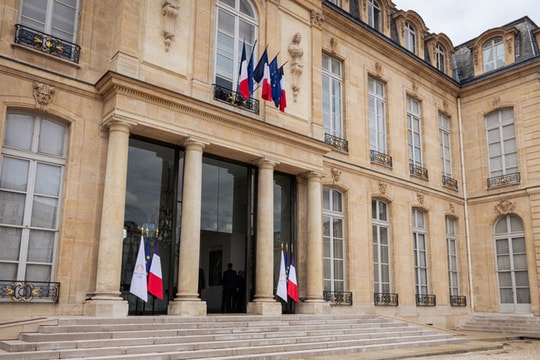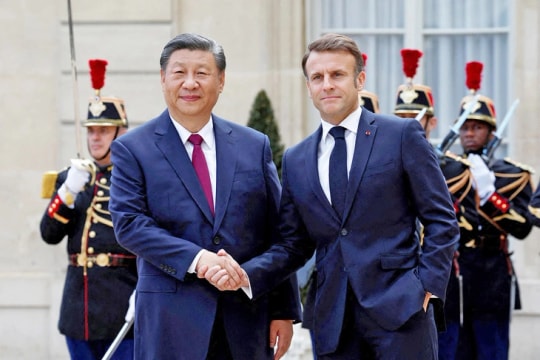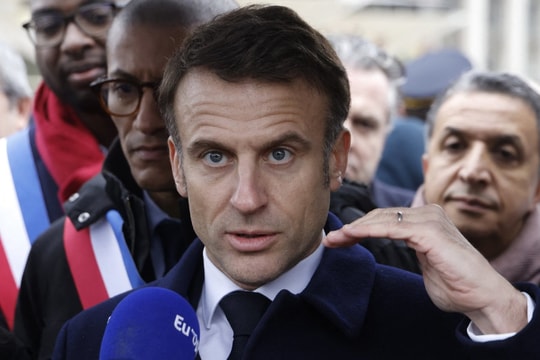'The curtain hangs the bell'
(Baonghean) - Sometimes, there is only a thin line between safety and danger. That was evident last week when Russia announced the establishment of de-escalation zones in the midst of the Syrian crisis, and the number one candidate for the Elysee Palace suddenly got into trouble just when he was on the verge of dominating.
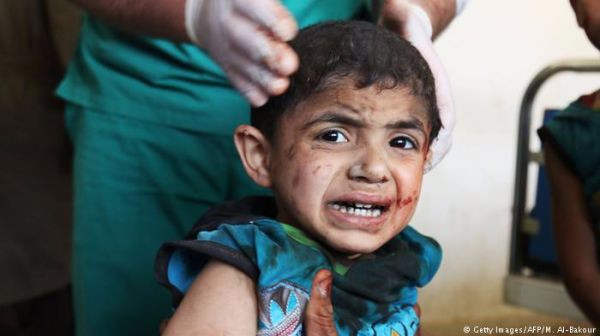 |
| Russia sets up safe zones to ease some of the conflict in Syria. Photo: AFP |
Safe zone in Syria
Russian officials have just announced that so-called “de-escalation zones” have been established in four areas on Syrian territory. According to the country’s Defense Ministry, these are areas that have been agreed upon by Moscow and its allies in the region, and will take effect from midnight on May 6 (Syrian local time), and said it will take about a month to concretize the related details.
According to the plan, which was unanimously agreed upon by Russia, Türkiye and Iran, four zones were established in eight of Syria's 14 provinces. The first and largest province is Idlib, along with the neighboring provinces of Latakia, Aleppo and Hama, forming one zone. Zone 2 is the north of the central province of Homs, Zone 3 includes the Eastern Ghouta area and Zone 4 covers the southern stretches of Syria, including Daraa and Quneitra provinces.
The three governments agreed to the plan at a meeting on May 5 in Kazakhstan, where peace talks in the capital Astana are still underway. Although UN special envoy for Syria Staffan de Mistura praised the plan, members of the Syrian opposition lamented it, arguing that dividing the country into different regions violates Syria's territorial unity.
The opposition has also been vocal in its opposition to the involvement of Iran, which it accuses of fomenting sectarian violence in the conflict, which has killed an estimated 400,000 people and displaced countless others. And is this a sign of the ill-fated nature of the ambitious plan? Not long after the safe zones came into effect, fighting broke out between Syrian government-allied forces and rebels in rural Hama.
Russian officials who signed the plan said the de-escalation zones, designed to ease the suffering of hundreds of thousands of civilians and encourage refugees to return to their homes, would also block military aircraft from the US-led coalition. In parallel, the air force of President Bashar al-Assad’s government would also stop flying over the four zones.
However, it is worth noting that a Pentagon spokesman said the plan will not have any impact on the US fight against the self-proclaimed Islamic State (IS) terrorist group, asserting that they will continue their air campaign against these elements. "The coalition will continue to target IS wherever they operate to ensure they have no safe haven," said spokesman Adrian JT Rankine-Galloway.
In addition, US Secretary of State Rex Tillerson and his Russian counterpart Sergei Lavrov discussed by phone “efforts to de-escalate the current conflict in Syria and support for negotiations in Geneva to promote a political solution.” In fact, the US is participating in separate UN-backed peace talks, unlike those taking place in Kazakhstan, which are still at a stalemate despite several rounds of negotiations and are expected to start a new round later this May.
As Russia and the United States are still far from agreeing on the Syria issue, it is not surprising that the situation is “playing one drum and blowing the other” happening. Moscow-Washington relations have been particularly tense in recent weeks following the chemical gas attack and the airstrike on a Syrian government air base, so it is not entirely pessimistic to say that the fate of the Russian-initiated plan is like a candle in the wind.
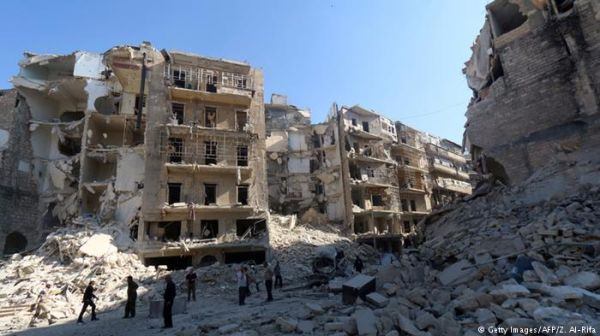 |
| Syria is left in ruins after years of conflict. Photo: AFP |
Trouble before "G hour"
On the last working day of the week, the campaign of French presidential candidate Emmanuel Macron announced that a large number of their emails had been leaked online, with the hidden purpose “clearly aimed at undermining the interests of democracy”.
The hack, described as “massive and coordinated,” has hit the campaign of a front-runner. The agency also said that documents related to internal and financial information were stolen weeks ago and are now “floating” and being widely disseminated on social media as the decisive moment of one of the most dramatic presidential elections in French history approaches. According to this line of thought, whoever is behind the leak is trying to “sow doubt and misinformation,” just one day before the final vote to choose one of the two current names to sit in the most prestigious seat in France.
Macron's team also asserted that fake documents were mixed in with the leaked documents, but the French Interior Ministry said it would not comment further as the campaign had ended. The French presidential election commission also met on May 6 to discuss the cyberattack and the release of the data. The commission also urged the media not to report the contents of the stolen emails, saying doing so could lead to legal action.
According to the information available, about 9 gigabytes of leaked data were posted on the Pastebin document sharing website by a user named EMILEAKS. WikiLeaks - a group that goes against the security trend - also posted a link to the above documents on Twitter, saying that it "includes tens of thousands of letters, photos, and attachments up to April 24, 20217". Although the organization quickly denied any involvement in the attack that caused the loss of documents, it could not help but question the purpose and intention behind it, because it seemed too late to change public opinion and influence the results of the French election.
Last month, a cybersecurity firm said it had detected a group of hackers believed to be part of a Russian intelligence unit targeting Macron and his campaign through phishing attacks. The firm, Trend Micro, also said it appeared the hackers were in league with the group that hacked Democratic campaign officials in the US presidential race last year.
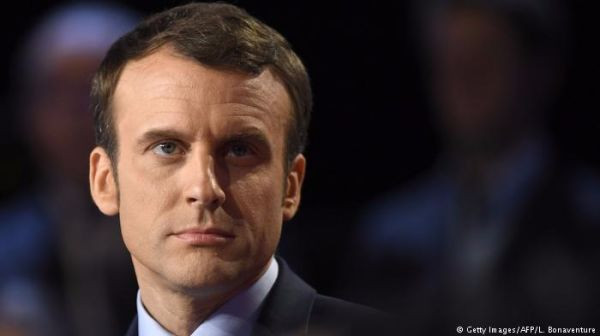 |
| Syria is left in ruins after years of conflict. Photo: AFP |
Macron’s team has accused the Kremlin of backing candidates who want to warm relations with Russia, such as the centrist candidate’s presidential rival, far-right candidate Marine Le Pen. Moscow, for its part, has responded calmly, stating that it has never “intended to interfere in the internal affairs of other countries.”
However, this incident clearly makes Mr. Macron restless, and both final candidates will have to be careful to maintain secrecy until the last moments of the fight, if they do not want to put their political lives in the hands of those with other intentions.
Thu Giang

